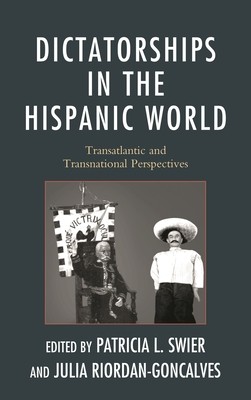
- We will send in 10–14 business days.
- Author: Patricia Swier
- Publisher: Fairleigh Dickinson University Press
- ISBN-10: 1611478308
- ISBN-13: 9781611478303
- Format: 15.2 x 22.9 x 2.5 cm, softcover
- Language: English
- SAVE -10% with code: EXTRA
Reviews
Description
This book broaches a comparative and interdisciplinary approach in its exploration of the phenomenon of the dictatorship in the Hispanic World in the twentieth century. Some of the themes explored through a transatlantic perspective include testimonial accounts of violence and resistance in prisons; hunger and repression; exile, silence and intertextuality; bildungsroman and the modification of gender roles; and the role of trauma and memory within the genres of the novel, autobiography, testimonial literature, the essay, documentaries, puppet theater, poetry, and visual art. By looking at the similarities and differences of dictatorships represented in the diverse landscapes of Latin America and Spain, the authors hope to provide a more panoramic view of the dictatorship that moves beyond historiographical accounts of oppression and engages actively in a more broad dialectics of resistance and a politics of memory.
EXTRA 10 % discount with code: EXTRA
The promotion ends in 20d.07:49:55
The discount code is valid when purchasing from 10 €. Discounts do not stack.
- Author: Patricia Swier
- Publisher: Fairleigh Dickinson University Press
- ISBN-10: 1611478308
- ISBN-13: 9781611478303
- Format: 15.2 x 22.9 x 2.5 cm, softcover
- Language: English English
This book broaches a comparative and interdisciplinary approach in its exploration of the phenomenon of the dictatorship in the Hispanic World in the twentieth century. Some of the themes explored through a transatlantic perspective include testimonial accounts of violence and resistance in prisons; hunger and repression; exile, silence and intertextuality; bildungsroman and the modification of gender roles; and the role of trauma and memory within the genres of the novel, autobiography, testimonial literature, the essay, documentaries, puppet theater, poetry, and visual art. By looking at the similarities and differences of dictatorships represented in the diverse landscapes of Latin America and Spain, the authors hope to provide a more panoramic view of the dictatorship that moves beyond historiographical accounts of oppression and engages actively in a more broad dialectics of resistance and a politics of memory.


Reviews